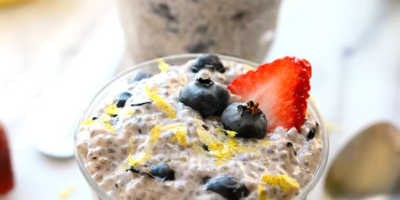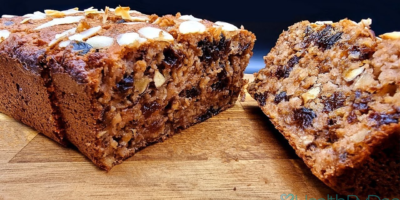When it comes to boosting milk production, knowing which foods to increase breast milk can make a significant difference for nursing mothers. Incorporating lactogenic foods into your diet not only fosters higher breast milk production but also supports the overall well-being of both mother and baby. The best foods for breastfeeding include nutrient-rich options that are known to enhance lactation, ensuring that mothers can meet their infants’ nutritional needs effectively. Nutrition for nursing mothers is vital; it influences not only milk supply but also the health and comfort level during breastfeeding. To optimize your milk production, explore these foods and implement practical breastfeeding tips for a successful nursing experience.
In the journey of motherhood, many new mothers may wonder how to naturally stimulate their milk supply. By focusing on nutrient-dense options that promote lactation, mothers can find solace in knowing that specific dietary choices play a crucial role in enhancing their milk reserves. Various galactagogues, often referred to as lactogenic foods, have remarkable properties that support breast milk production, allowing mothers to nurture their babies more effectively. Understanding the impact of balanced nutrition on nursing can pave the way for better breastfeeding outcomes. Embrace these dietary insights to cultivate a fulfilling breastfeeding experience for both mother and child.
Understanding Lactogenic Foods for Milk Production
Lactogenic foods play an essential role in enhancing breast milk production, making them vital for nursing mothers. These foods contain specific nutrients and compounds that support the lactation process and help to ensure a steady milk supply. Including lactogenic foods in your diet can promote both the quality and quantity of breast milk, providing optimal nutrition for your baby. Some of the most effective lactogenic foods include oats, fennel, and green leafy vegetables, which have been traditionally recognized for their milk-boosting properties.
By incorporating these lactogenic foods into your meals, you can create a diet that not only supports your health as a nursing mother but also supplies your baby with the nutrients necessary for growth and development. To increase breast milk production effectively, it’s important to maintain a balanced diet rich in protein, healthy fats, and essential vitamins and minerals. Consider collaborating with a nutritionist to develop a tailored meal plan that focuses on the best foods for breastfeeding, ensuring your nutritional needs are met while maximizing your milk supply.
Best Foods for Breastfeeding Moms
Choosing the right foods can make a significant difference in breastfeeding success. The best foods for breastfeeding include a variety of nutrient-dense options that sustain milk production while also promoting overall health. Foods rich in protein such as eggs, chicken, and fish are essential, as they provide the necessary building blocks for both your body and your milk. Additionally, incorporating whole grains, legumes, and a diverse range of colorful fruits and vegetables can enhance not only your milk’s nutritional profile but also your well-being during this demanding time.
Furthermore, staying adequately hydrated is crucial when breastfeeding, as fluid intake directly influences milk production. Drinking plenty of water and incorporating beverages like herbal teas—especially those renowned for their lactogenic effects like fennel and fenugreek tea—can ultimately support your breastfeeding journey. Prioritizing these nutrient-rich foods, along with healthy eating practices, contributes significantly to your milk supply and aids in a smoother breastfeeding experience.
Nutrition for Nursing Mothers
Nutrition during lactation is essential for both the mother’s and baby’s health. Breastfeeding mothers require higher caloric intake and specific nutrients to maintain their energy and support milk production. It is crucial to focus on a balanced diet that includes whole foods rich in calcium, iron, and vitamins, all of which are beneficial not only for breastfeeding but also for postpartum recovery. Consuming a mix of protein-rich foods, whole grains, fruits, and vegetables ensures that mothers receive adequate nutrition while promoting the production of nutrient-dense breast milk.
A well-rounded diet should incorporate lactogenic foods that naturally enhance milk supply. Foods such as barley, oatmeal, and legumes not only provide essential nutrients but also help to boost milk production. Moreover, aiming for 2-3 servings of dairy or dairy alternatives can help meet increased calcium needs. As nursing mothers navigate their breastfeeding journey, they should make mindful eating choices, focusing on the nutritional quality of their foods to benefit both themselves and their breastfeeding infants.
Effective Breastfeeding Tips for New Moms
Understanding effective breastfeeding tips can ease the transition into motherhood and ensure a successful breastfeeding experience. Regular breastfeeding on demand and maintaining a consistent breastfeeding schedule is key. Frequent nursing signals your body to produce more milk. Additionally, ensuring that the baby latches properly can maximize milk transfer, which in turn stimulates milk production. Position changes can also enhance comfort and facilitate easier access to the breast.
Another important tip for new moms is to manage stress as it can negatively impact milk supply. Practicing relaxation techniques, such as deep breathing or gentle yoga, can help new mothers find moments of calm amidst the demands of caring for a newborn. Staying hydrated and consuming lactogenic foods can also complement these efforts, creating a positive cycle that supports both emotional well-being and milk production.
Signs Your Milk Supply is Decreasing
Being aware of signs indicating a decrease in breast milk supply is essential for nursing mothers. Common signs include less frequent breastfeeding sessions or noticeable weight loss in the baby. If your baby seems unsatisfied after feedings or if there are fewer wet diapers than expected, these may indicate that milk supply is not sufficient. It’s crucial to recognize these signs early to take corrective actions.
To address a decreased milk supply, consider reviewing your breastfeeding techniques, ensuring that feedings are regular and effective. Additionally, assess your diet to include more lactogenic foods while also focusing on hydration. Consulting with a lactation consultant can provide support and strategies to help restore your supply and enhance your breastfeeding experience.
How Stress Affects Milk Production
Stress can have a profound impact on milk production, often leading to a decrease in supply due to hormonal fluctuations. When a mother is stressed, the body produces higher levels of cortisol, which can inhibit the release of oxytocin, the hormone responsible for milk ejection. As a result, mothers may find that their milk supply diminishes, making breastfeeding more challenging.
To counteract the effects of stress, it is essential for mothers to prioritize self-care and stress management techniques. Establishing a routine that includes relaxation activities, social support, and balanced nutrition can help mitigate stress levels. Incorporating calming practices such as meditation, regular exercise, and supportive family engagement can create a balanced environment conducive to healthy milk production.
Herbal Remedies for Increasing Milk Supply
Many nursing mothers have turned to herbal remedies as a natural way to increase breast milk supply. Certain herbs, known as galactagogues, can help stimulate milk production when included in the diet. Common galactagogues include fenugreek, blessed thistle, and fennel, which have been traditionally used in various cultures to promote lactation.
Integrating these herbs into your meals can be as simple as brewing herbal teas or incorporating them into cooking. However, it is essential to consult with a qualified healthcare provider or nutrition expert before starting any herbal remedies to ensure they are appropriate for your individual health needs and do not interfere with any medications.
Understanding the Role of Colostrum
Colostrum, often referred to as ‘liquid gold,’ is the first form of milk produced by the body after childbirth. It is packed with nutrients, antibodies, and proteins that are crucial for a newborn’s health during the first few days of life. Understanding the importance of colostrum not only highlights its benefits but also emphasizes the body’s natural ability to provide for its baby immediately after birth.
Colostrum is particularly rich in immunoglobulins and white blood cells that help bolster the newborn’s immune system. This initial milk aids in the newborn’s digestive system, promoting healthy growth and laying the groundwork for a robust immune response. New mothers should be encouraged to breastfeed soon after delivery to maximize colostrum intake, which is foundational for their baby’s health.
Postpartum Dietary Recommendations for Milk Production
After childbirth, it is vital for mothers to focus on a nutritious diet to support healing and milk production. Postpartum dietary recommendations emphasize the need for increased caloric intake, roughly 500 calories more per day, alongside balanced meals that are rich in proteins, fruits, and vegetables. Eating a variety of foods ensures an adequate supply of essential vitamins and minerals that not only enhance breast milk quality but also support the mother’s health.
It’s also advisable to consume calcium-rich foods such as yogurt and milk, along with iron-rich options like spinach and red meat, as these nutrients are crucial for both recovery and breastfeeding. Staying hydrated is equally important, so mothers should aim to drink plenty of fluids throughout the day, focusing on water and herbal teas known to aid in lactation.
Frequently Asked Questions
What foods increase breast milk production effectively?
To effectively increase breast milk production, nursing mothers should incorporate lactogenic foods into their diet. Foods such as oats, barley, lentils, nuts, and seeds are known for their milk-boosting properties. Additionally, leafy greens like spinach and herbs like fennel and garlic can also support lactation.
Which lactogenic foods are best for breastfeeding mothers?
Some of the best foods for breastfeeding mothers include oats, barley, almonds, and legumes. These foods not only provide essential nutrients but also help in increasing breast milk production. Regular consumption of these lactogenic foods is recommended to support healthy milk supply.
How can nutrition for nursing mothers affect breast milk production?
Nutrition for nursing mothers plays a crucial role in breast milk production. A balanced diet rich in proteins, healthy fats, and vitamins can enhance milk supply. Drinking plenty of fluids, especially water, and incorporating lactogenic foods like fenugreek and dairy products can help significantly increase breast milk.
What breastfeeding tips can help increase milk supply?
To increase milk supply, mothers should focus on frequent breastfeeding sessions and ensure proper latch. Eating lactogenic foods, staying hydrated, and managing stress are essential breastfeeding tips. Additionally, consulting with a lactation expert can provide personalized advice and support.
What beverages are effective in increasing breast milk?
Beverages like water, fennel tea, and herbal teas can effectively help increase breast milk production. Staying hydrated is vital, as breast milk is primarily composed of water. Consuming drinks like biryani or ayran can also be beneficial.
Can decreasing breast milk supply be restored?
Yes, decreasing breast milk supply can often be restored by addressing the underlying issues. Stress management, proper hydration, and a healthy diet rich in lactogenic foods can help improve milk production. Consulting a lactation consultant can also guide effective strategies.
What is colostrum and why is it important for breastfeeding?
Colostrum is the first milk produced after childbirth, rich in nutrients and antibodies vital for a newborn’s health. It provides essential proteins, vitamins, and minerals, helping to establish the baby’s immune system and promoting healthy growth.
What are some quick ways to increase breast milk?<|diff_marker|>
To quickly increase breast milk, mothers should focus on hydrating well, consuming more lactogenic foods like oats and legumes, breastfeeding frequently, and managing stress levels. Regularly scheduled nursing sessions can also stimulate milk production effectively.
How does the body naturally increase breast milk supply?
The body naturally increases breast milk supply through the principles of supply and demand. The more frequently a mother breastfeeds or pumps, the more milk her body produces. Hormones such as prolactin play a significant role in this process.
What role does dieting play in the production of breast milk?
Dieting can negatively affect breast milk production if it results in nutrient deficiency. It’s essential for nursing mothers to maintain a balanced diet rich in lactogenic foods and to avoid extreme dieting to support healthy milk production.
| Key Topic | Details |
|---|---|
| Importance of Breast Milk | Breast milk meets all of the baby’s nutritional needs and is crucial for growth and development. |
| Vitamin Composition | Contains Vitamins A, B6, C, D; essential minerals like potassium, calcium, and sodium. |
| Factors Causing Decrease in Breast Milk | Poor diet, stress, lack of sleep, and insufficient hydration can reduce milk supply. |
| Benefits of Breast Milk for Babies | Promotes healthy growth, enhances immunity, and reduces disease risks. |
| Benefits of Breastfeeding for Mothers | Burns calories, lowers health risks, and promotes quicker postpartum recovery. |
| Ways to Increase Milk Production | Stay hydrated, eat a balanced diet rich in protein, and breastfeed frequently. |
| Foods to Increase Milk Production | Includes tahini, legumes, oats, green leafy vegetables, and nuts. |
| Frequently Asked Questions | Includes questions about milk increase, beneficial foods, and colostrum. |
Summary
Foods to increase breast milk can significantly enhance a mother’s milk production and nutrition during breastfeeding. To ensure an adequate supply of breast milk, mothers should focus on a well-balanced diet coupled with proper hydration. Integrating lactogenic foods into their daily meals and maintaining a relaxed and healthy lifestyle can lead to long-term benefits for both mother and baby during this crucial bonding period.















Comments